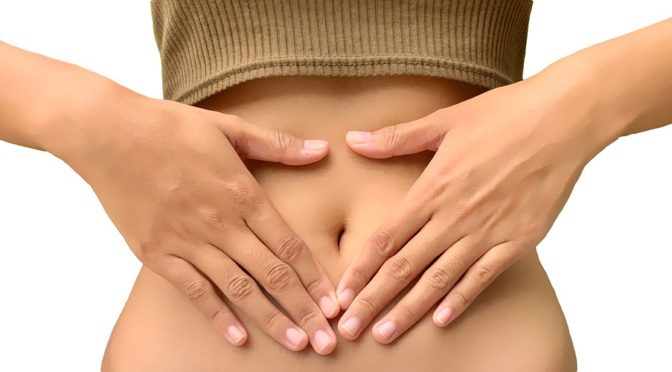Even Hippocrates argued that all diseases begin in the intestines, including head diseases. But it seems incredible to us: the head and the intestines are not next-door neighbors! However, modern research proves that these two organs are closely interconnected, and the guts are our second brain.
In general, the nervous system consists of the central and peripheral nervous systems, which are closely interconnected and follow precise rules. Outside of these rules are the nerve plexuses of the gastrointestinal tract, the cells of which are located in two rows throughout the entire digestive tract, which is about 9 m long in an adult! This is a kind of stocking covering the esophagus, the stomach and the intestines.
At the beginning of the twentieth century, the English physiologist Newport Langley calculated the number of nerve cells in the stomach and intestines – 100 million. This is more than in the spinal cord and the peripheral nervous system.
Compared to the number of nerve cells in the intestines, the number of nerve fibers associated with the brain or spinal cord and intestines is very small. Most of the nerve cells in the digestive tract have no direct connection with the central nervous system. Precisely because this connection can not be attributed to either sympathetic or parasympathetic, this part of the nervous system was called enteric.
Enteric nervous system
The enteric nervous system is viewed as an autonomous area of integration and control of neural processes. Unlike the peripheral nervous system, these plexuses are not required to follow all commands from the brain.
They send signals to the central nervous system about the reaction to received information and act on the basis of this data, activating a certain set of effectors that are controlled only at the level of these plexuses.

90% of the fibers of the vagus nerve carry information from the digestive tract to the brain, and not vice versa. This is a powerful channel of “physiological information”. This is what makes it a second brain. In particular, this idea was presented in detail in the works of Dr. Michael Gershon, head of the Department of Anatomy and Cell Biology at Columbia University Medical Center and the author of Second Brain, published in 1998.
Although a number of authors dispute the autonomy of this system, providing new data on the influence of the central nervous system on the enteric system, research in this area goes on.
Stress and Gut
Stress is of great importance in the occurrence of any disease and can lead to various pathologies – not only of the intestines. It depends, among other things, on the genetic predisposition of a person.
Under the influence of intestinal microorganisms, neurotransmitters (biologically active chemicals) are released, which, in turn, have an effect on the central nervous system.
The link between emotions and intestinal dysfunction has been scientifically proven. It manifests itself in different ways: it can be loosening of the stool or, conversely, a pronounced spasm, discomfort associated with increased gas production.
If intestinal dysfunction manifests itself for a long time, it ultimately leads to a change in the microflora of the intestines and the submucosa. Thus, under certain circumstances, impaired intestinal motility can be accompanied by more significant changes in the intestine.
Get Irritated Often? Your Gut Might Be the Reason

Irritability and apathy are often cited as some of the symptoms of digestive diseases. How can mood changes be related to the condition of the gastrointestinal tract? This connection is noticeable in a disease called irritable bowel syndrome. There are disturbances in the functioning of such structures as the cerebral cortical centers, the autonomic nervous system, the peripheral nervous apparatus of the intestines with a system of neurotransmitters and biologically active amines, among which the leading role is played by serotonin and its receptors in the intestines.
Much remains to be fully understood. It is known that such patients have fermentative dyspepsia, against the background of which intestinal dysbiosis progresses rapidly. A failure in the functional regulation of the guts is expressed in increased sensitivity to small pathological stimuli.
Information is received through the brain and transmitted to the “intestinal nervous system” or directly sampled by the intestines and transmitted to the brain. The selected information remains in the blink of an eye and is processed by the “intestinal nervous system” for a physiological response. The gut inform the brain about these effects. Then our state of health is formed: we are either in a good mood, or we fall into despondency, which leads to depression.
Tryptophan and Serotonin
The work of the intestines affects the mood, performance, and psychological state of a person. The intestines produce very important substances, hormones, and their level influences our well-being. Approximately 80-90% of the total volume of serotonin in our body is produced by the nerve cells in the intestines.
One of the main roles in this performance is played by tryptophan – an amino acid found in milk, butter, bread, porridge, etc., which can be converted into serotonin. Serotonin is a neurotransmitter, the amount of which determines the rate of transmission of information through nerve cells.
If we do not oversaturate the body with protein (there will not be too much protein in the food compared to carbohydrates), tryptophan will exceed the blood-brain barrier and will turn into the hormone of happiness during the day (serotonin) or into the hormone of good sleep at night (melatonin).
However, if there are too many proteins, for example, for dinner, then tryptophan has no chance of competing with other amino acids in passing through the blood-brain barrier. The intestines convert excess tryptophan into serotonin and use it for the efficient functioning of the “intestinal nervous” system.
Unfortunately, the excess of serotonin circulating in the blood blocks the mechanisms of calcium absorption through our bones. Therefore, a “protein-rich” diet (e.g. if we drink a liter of milk every day) will lead to osteoporosis and depression.
Hunger strikes and cleansing diets
In ancient times, sages and philosophers kept to a mandatory weekly hunger strike before writing their works. It not only contributes to the effective performance of the entire gastrointestinal tract but also influences the efficiency of the entire nervous system due to its good functioning. It is worth going on hunger strikes for a day or two at least once a month.
What does your “second brain” want?
Before you put something in your mouth – sausage, carrots, chips – please think first; “How did I feel after eating this very thing?” Just as the brain wants to listen to music rather than the hum of an airplane taking off, our “second brain” prefers natural foods and natural supplements over “food chemistry.”
Knowing your individual needs will help you find the right path to mindful nutrition and supplementation. Thanks to this, you will forever say goodbye to constipation, diarrhea, bad mood, depression, allergies, joint diseases, etc.
What is the right food for the second brain?

It is very important to properly feed the gut bacteria so that they can perform their full functions in the body. The microbiota “loves” fermented milk products, especially those containing prebiotics, all types of pickled vegetables, and fiber. But an excessive amount of sugars acts on bacteria as an antibiotic – it is no coincidence that sugar is put into the jam to prevent the fermentation of berries, that is, the multiplication of bacteria.
In general, proper nutrition is based on two main principles. The first of them is the energy value of food. However, it is important to remember that our body does not just burn calories but assimilates them, therefore it is not so much the quantity as the quality of the calories consumed that is important. For example, the value of equal quantitatively fast and slow carbohydrates is completely ambiguous.
The second principle is the balance of nutrients in chemical composition: proteins, fats, carbohydrates, minerals, and vitamins. According to David Perlmutter, a neurologist and member of the American Society for Nutrition, the ideal balance of essential nutrients for brain health should be something like this: 75 percent fat (naturally good fats), 20 percent protein, and 5 percent carbohydrates.
Studies of the relationship between the state of the intestinal microflora and brain diseases have been conducted for several years. Their latest findings suggest that common brain diseases such as dementia, Alzheimer’s, and Parkinson’s disease may be associated with poor gut health.
The findings of scientists at the University of California suggest that intestinal microflora can aggravate the course of diseases that were previously considered exclusively mental. For example, inflammatory processes in the intestines contribute to the onset of depression.
Remember the three basic rules of good nutrition: variety, moderation, and regularity. Eat wisely and keep your brain healthy.
